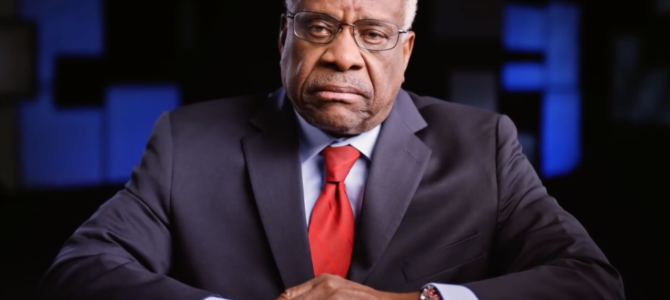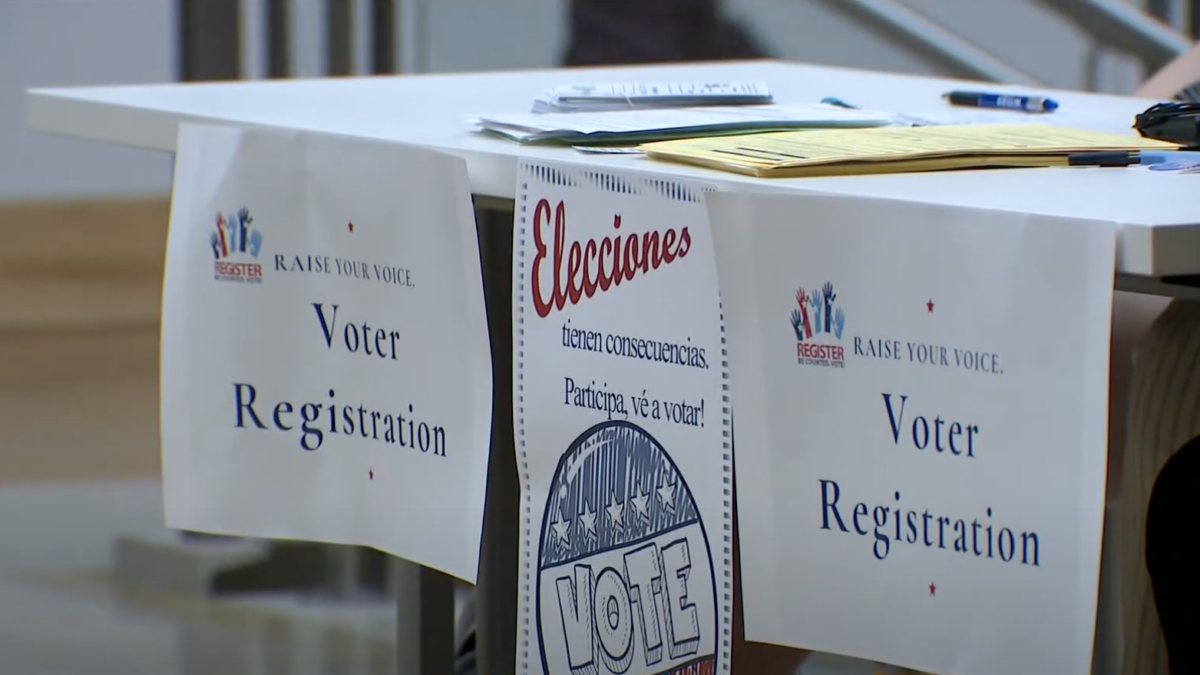
The climax of “Created Equal: Clarence Thomas in His Own Words,” arrives when the venerable justice recalls the moment he learned his nomination to the Supreme Court was confirmed. Speaking very much “in his own words,” Thomas remembers thinking, “whoop-dee-damn-doo.”
The humor is poignant because it comes after viewers journey with Thomas through his whole life, from rural poverty in the Jim Crow South to Yale, from one marriage to another, from seminary to the Supreme Court, and from hard-earned respectability to a devastating confirmation battle. After watching decades of blood, sweat, and tears culminate in a character assassination of historic proportion, “whoop-dee-damn-doo” feels about right.
The corporate media’s one-dimensional rendering of Thomas is deeply unfair, and that’s where director Michael Pack steps in. “Created Equal,” Pack’s compelling new documentary, opens in select theaters on Jan. 31. (See here for the full list, or to request a local screening.)
Pack managed to get the famously quiet jurist talking, guiding viewers on an intimate march through his remarkable life, starting in little Pin Point, Georgia, and ending where he sits today. “Created Equal” features two surprisingly fast hours of original interviews with Thomas and his wife Ginni, cut from more than 30 hours Pack spent interviewing them in a Virginia studio over a six-month period.
I chatted with Pack earlier this week about what it was like behind-the-scenes of “Created Equal,” his experience working so closely with Justice Thomas, why the story is so relevant today, Joe Biden, and so much more.
On Why Thomas Decided to Cooperate with the Film
“I think he just got tired of having his story coming out in a distorted form. He got tired of his enemies and the people who don’t like him spreading half truths and misrepresentations and outright lies, actually, sometimes about him. So I just think he felt the time was right. I’m not sure why exactly, but I’m lucky that this was the right time and that he trusted us to do it… He had no editorial input or control. So it was a lot of trust, from both Justice Thomas and Ginni Thomas.”
On Why Pack Wanted to Make the Film
“I think it is timely, but I made the film because I think it’s an important American story for all time. I think it’s a classic story of going from dire poverty in the segregated South to the highest court of the land, including many spiritual and intellectual twists and turns. I think it’s a great story, and I think people should watch this movie for years to come, and beyond its time in theaters. We hope to get it into high schools. I think clips of it and curriculum and materials should be used in Black History Month. I think his story is an inspiring story.”
On Getting Thomas to Open Up
“I did have to develop a rapport with him. He is a good storyteller. And the challenge with any interview is to try to get people sort of beyond their more canned stories and get them to speak about the deeper truth. And Justice Thomas was very good about that. He understood that to be the purpose. But it did take a while to sort of get him used to the format and get him comfortable. It was a very elaborate set. We had two cameras, one was on a dolly, we had a lot of lights, it was a very big studio. It did take a little bit to get him used to it and comfortable. But he really has a lot to say, and he’s a good storyteller. So it was, at that level, not hard.”
On the ‘Grueling’ Six-month Interview Period
“We were originally going to interview him for three hours at a time, but he was very good at doing long interviews. We interviewed him for four hours at a time, from like, eight o’clock to noon. We had to get there at three o’clock in the morning to light the set and it was very grueling. He had to relive his past, you know, very difficult past, including confirmation, but going all the way back, and I think it was very exhausting.”
On Thomas’s Gracious Interactions with the Crew
“We promised to get him out by noon every day. He has to go to the court, he has work to do so, at noon, every day we would let him go we as promised, and then we would always invite him to lunch with the crew. And he always stayed a whole other hour. He particularly liked to talk to the young people. He talked to my youngest son, who was working on the set, and another production assistant. He wanted to find out what they’re doing with their life, where they’re going. Even after these interviews, he had a heart for the young people, and that was really great.”
On Why the Film Is Timely
“It turns out to be very current. It was after we initiated the project that the [Brett] Kavanaugh hearing happened, and the Me Too movement, and some of these issues are in the fore. There are other competing narratives [on African-American history] like the 1619 Project. So I think it’s an important time now.”
On Cutting 30 Hours of Interviews into a Two-hour Movie
“He’s a great storyteller. He told many stories that are simply on the editing room floor. In a way, a tricky thing is that the last long interview with him was largely about his time after confirmation. We talked at length about his jurisprudence and his judicial philosophy. And, I mean, a lot of that had to go.
“One of the things we do to sort of get it down is we show it to different groups to see where people are interested or not and, sad to say, people were not that interested in judicial philosophy and analysis of particular cases… So there was a lot about that that just didn’t make the final film that I think would be fascinating. We might actually do a 30-minute version for law schools about material. But there was also a lot of just great personal stories that could make it into the final film.”
On Ginni Thomas’s Contributions to the Film
“I think she added a very important additional voice. I mean, especially but not only during the confirmation battle. She was able to talk about emotions that she felt and what they went through and the extent to which it was a spiritual battle at the end. I thought it was very moving about that.”
On Joe Biden at Thomas’s Confirmation Hearing
“It is not good for Joe Biden. He did not treat either Clarence Thomas or Anita Hill very well. You can see that both in my documentary. He has apologized to Anita Hill. He’s a long way from apologizing to Clarence Thomas.
“I think he’s got to deal with his past. I hope somebody on the campaign trail asks him about it. But who knows? …To give it context, he was using natural law questions to try to get Justice Thomas to speak about abortion. And he, I think, got lost in the philosophical complexities that he was trying to wind his way through, and it did not look good. It went on and on for days. He kept coming back to it many, many times.”
On Thomas’s Outlook on Life and Adversity
“One of the great things about him is his refusal to define himself as a victim, even though he had reason and cause to do that. And also his resiliency, his ability to sort of come back from difficulties. In the end, I think Justice Thomas would say that he had a great life and that he was blessed to be raised by his grandfather and those Irish nuns. He’s grateful for that, rather than feeling badly about it.
“And I think he hopes that other young people have that kind of background to help them. So, for example, his favorite charity is the Horatio Alger Association, to whom we are giving 25 percent of the profits of our theatrical run. So, yes, I think he’s happy where he is. I think he loves being on the court and loves what he’s doing. He doesn’t feel good about what happened to him during confirmation, but he’s happy about where he’s where he’s at today.”









